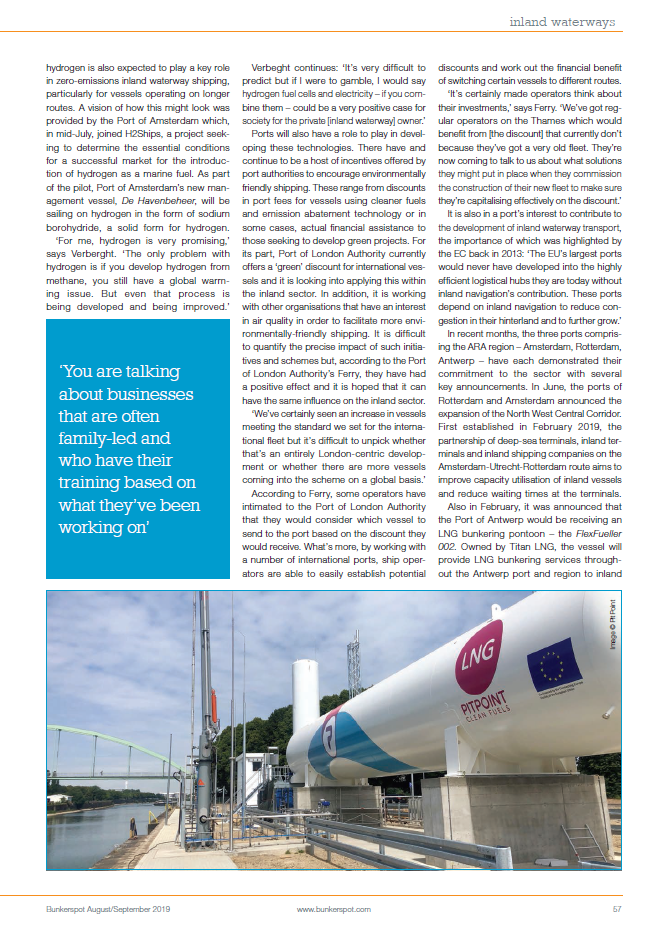Environmentally friendly marine fuels for inland waterways
LNG considered to be one of the most promising alternative fuels
21-08-2019[Source: Bunkerspot]
Governments are increasingly turning to domestic inland waterways to boost transport efficiency. Rhys berry, news editor at Bunkerspot, spoke with industry stakeholders to find out about the advantages of using waterway networks and the potential emergence of more environmentally friendly marine fuels in the sector.
LNG is considered to be one of the most promising alternative fuels in the transition to clean transport in shipping. Therefore, Rhys Berry of Bunkerspot had an interesting interview with Jan Willem Drijver, Managing Director at PitPoint.LNG. Read the full article of Bunkerspot here.
We see a strong push from the EU but also from local governments to see what they can do to contribute to cleaner air in their city or region and what are the alternatives. I think also the realization starts to kick in that electric and hydrogen are not foreseen for the coming decade and not for lang distances either. LNG remains the only seasonable alternative to conventional oil-based bunker fuel.
Jan Willem Drijver, Managing Director at PitPoint.LNG
More about Liquefied Natural Gas (LNG)
Sailing on LNG is cleaner because LNG combusts more cleanly than diesel. Meaning, lower CO2 emissions and, as such, a reduced impact on the global environment and climate. The biggest benefit of using LNG, however, lies in the reduced emission of fine particulates and NOx which have a negative impact on the local air quality. A transition to LNG will therefore have a direct positive impact on the health of the people living in the vicinity of waterways used for shipping. LNG-powered ships also ensure that vessel owners comply with the Stage V emission standards for shipping without the need for additional post-treatment systems. Construction of the LNG bunkering station in Cologne is part of PitPoint.LNG’s strategic aim to develop a European LNG infrastructure for transport by road and water. It will be the first shore-to-ship LNG refuelling location in Europe, as well as the first to serve Europe’s busiest river, the Rhine.

Leave a Reply